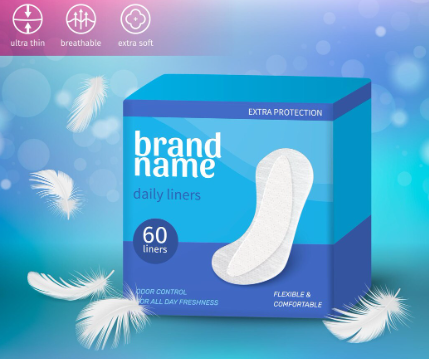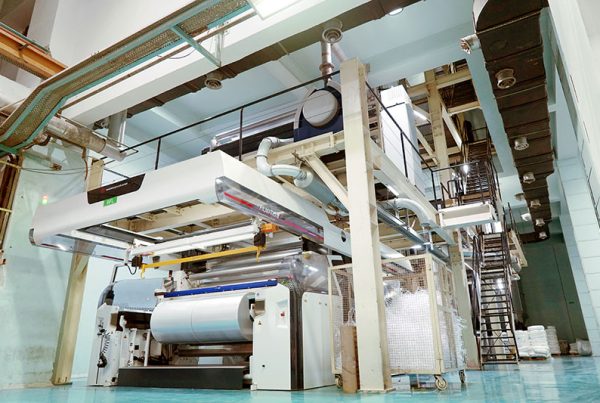What Are Pharmaceutical Packaging Films?
Pharmaceutical packaging films are flexible film materials used as primary packaging (in direct contact with the medicinal product) or secondary packaging (protective outer layers). They must preserve drug safety, stability, prevent contamination, and provide barrier properties (against moisture, oxygen, light, etc.).
Key Regulatory Standards and Certifications in India
For a manufacturer like Kanodia Technoplast, meeting several national and international standards is essential:
- ISO 15378
This is perhaps the most critical standard for primary packaging materials (films, foils, laminates) that come in direct contact with medicinal products. ISO 15378 requires compliance with Good Manufacturing Practices (GMP) for production, risk assessments, quality management systems, traceability, batch control, and documentation. - Schedule M (Revised) under the Drugs & Cosmetics Act
India’s Schedule M demands stricter controls over manufacturing, packaging, labeling, and storage of pharmaceutical products. Packaging films must satisfy material compatibility, durability, cleanliness, and must prevent product degradation. - IS 16011:2012 / BIS Certification
For aluminium foils and aluminium-alloy foils (often part of blister packs or foils laminated onto films), IS 16011:2012 sets specifications for thickness, mechanical strength, seal strength, absence of defects (like pinholes), freedom from impurities, and proper lamination. Certification via BIS (ISI mark) ensures compliance. - Good Manufacturing Practices (GMP) for Packaging & Labeling Guidelines
These are general regulations that specify environmental controls (temperature, humidity), hygiene, contamination prevention, SOPs for handling and inspection, material safety, tamper-evident features, and traceability. Packaging operations must be done in controlled, clean environments. - Material Compatibility & Barrier Requirements
Films should not interact (chemically or physically) with the drug product. They should provide adequate barrier against moisture, oxygen, light etc., depending on the drug’s stability profile. Also, sealing strength, lamination, heat resistance are major tests. These are often validated under accelerated stability studies. (In many cases as part of ISO-15378 or GMP validations.)
How Kanodia Technoplast Ensures Compliance
As a Pharmaceutical Packaging Films Manufacturers in India, Kanodia Technoplast must adopt internal systems and practices to meet these standards consistently. Some of the measures it can employ include:
- Quality Management System (QMS) aligned with ISO 9001 and overlaid with GMP principles, especially as required by ISO 15378. This involves documented SOPs, process validation, in-process checks, batch-wise process control, record keeping, and periodic audits.
- Controlled Manufacturing Environment: Clean rooms or clean zones, filtered and conditioned air (for temperature, humidity), hygiene protocols to avoid particulate or microbial contamination.
- Material Testing and Validation: Testing raw materials for impurities; film/foil for mechanical strength, pinhole count, seal strength, barrier performance; accelerated aging tests to check for color, adhesion, integrity changes over storage.
- Certifications and Regulatory Approvals: Obtaining ISO 15378 certification, BIS/ISI mark (for relevant components like aluminium foil), approval from CDSCO or state drug regulatory authorities, complying with Drugs & Cosmetics Rules.
- Tamper-Evident & Traceability Features: Including features like serialization, unique batch codes, clear labeling of batch, manufacturing and expiry dates, ensuring packaging permits tracking and recall if needed.
- Labeling and Information Integrity: Labels must clearly specify drug name, strength, dosage form, manufacturer, lot number, expiry, storage conditions. Consistency, legibility, durability (resistance to smudging, fade) are part of standard.
- Clean Storage & Transportation: After manufacturing, films must be stored under controlled conditions (temperature, humidity) and transported so that they are not exposed to moisture, heat, or mechanical stress.
Why These Standards Matter
When Kanodia Technoplast adheres to these standards:
- Product safety is preserved — medicines do not degrade prematurely, are not contaminated.
- Regulatory compliance avoids issues like product recalls, market rejections, or penalties under the Drugs & Cosmetics Act.
- Trust is built with pharmaceutical clients (who must meet regulatory rules themselves) and with international buyers or partners.
- Performance reliability (seal integrity, barrier properties) ensures patient safety and shelf stability of medicines.
In Summary
For Kanodia Technoplast, being one of the trusted Pharmaceutical Packaging Films Manufacturers in India means going beyond basic production. It means:
- Implementing ISO 15378 + GMP + QMS rigorously.
- Ensuring critical material standards like IS 16011 for aluminium foils.
- Adhering to Schedule M (Revised) / Drugs & Cosmetics regulations.
- Focusing on material compatibility, sealing and barrier performance.
- Ensuring traceability, tamper evidence, clean manufacturing, and proper storage/transport.
By doing this, Kanodia Technoplast not only meets regulatory benchmarks but also provides packaging that preserves drug quality, protects patients, and maintains trust in the pharmaceutical supply chain.
FAQs
What are pharmaceutical packaging films?
They are specialized plastic or laminate films used to protect medicines from moisture, oxygen, and contamination while maintaining product stability.
Which standards guide pharmaceutical packaging films in India?
Manufacturers follow ISO 15378, Schedule M of the Drugs & Cosmetics Act, and BIS specifications such as IS 16011 for quality and safety.
Why is ISO 15378 certification important?
It ensures films are produced under strict Good Manufacturing Practices, guaranteeing consistency, traceability, and contamination control.
How does Kanodia Technoplast maintain product quality?
By using controlled clean-room facilities, rigorous raw-material testing, and continuous in-process inspections to meet global pharmaceutical requirements.
What benefits do high-quality films provide to drug makers?
They extend shelf life, preserve medicine potency, support regulatory compliance, and improve patient safety.




